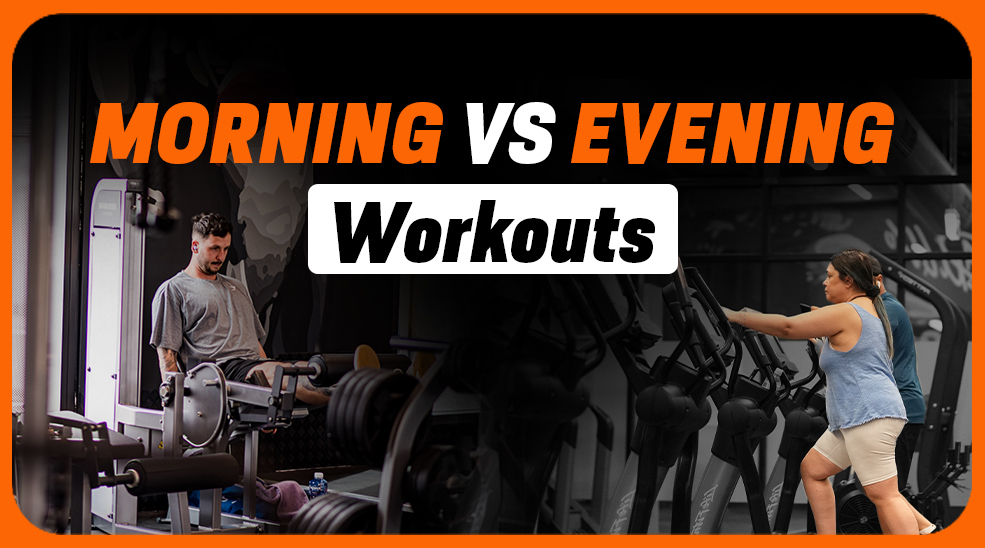ALWAYS OPEN! WE WORK 24/7

Ask any average lifter or jogger and they’ll tell you: when you work out can make you feel different, move differently. Aside from convenience, the time you exercise has an interaction with your body’s internal clock—core temperature, hormones, and metabolism—that can drive results one direction or another. Good news is that morning and night workouts are both viable; best time is a function of your goals, lifestyle, and your body’s response.
Performance: strength and power tend to peak later in the day
A large body of evidence discovers short, high-intensity and strength performances to experience early-morning troughs and late-afternoon/early-evening peaks—most likely because there is greater core temperature and neuromuscular preparation in the latter half of the day. Training at the same time regularly can also move your peak into that window.
Fat loss & metabolism: mornings (particularly fasted) assist in fat oxidation
Controlled chamber trials demonstrate exercise in the morning after fasting is higher 24-hour fat oxidation than the same session later in the day with meals equated—indicating a special metabolic push from morning training in a fasted state. That doesn’t necessarily translate to greater weight loss (diet is still king), but it’s an effective tool if fat loss is the priority.
Different responses by gender and goals
In a 12-week randomized trial, women exercising in the morning experienced more decreases in visceral fat and blood pressure, and evening training improved performance measures. In men, evening training boosted fat oxidation and decreased systolic blood pressure.
Sleep: evening workouts aren't the bad guy (with one exception)
Systematic reviews indicate that evening exercise does not usually interfere with sleep and can even be beneficial—unless extremely strenuous and taken to bed within approximately an hour. More recent big-data wearable data reinforce this: complete high-strain workouts ≥4 hours prior to sleep to prevent late sleep onset and reduced sleep quality.
Consistency is most likely to be most important for compliance
Individuals who exercise at the same time every day accumulate more weekly activity and are more likely to achieve maintenance levels, irrespective of whether they’re morning or evening exercisers. Consistency is a strong behavior cue that makes workouts “stick.”
If your priority is fat loss or cardio-metabolic health
Try mornings, particularly prior to breakfast, to increase 24-hour fat oxidation and support a healthy daily habit.
If you have blood pressure targets, mornings might have a slight advantage (particularly in women).
If strength, power, or high-intensity performance is most important
Train late afternoon/evening when body temperature and neuromuscular performance are likely to be greatest.
Compete or test in the evening? Practice at the same time to get your rhythms in sync.
If sleep quality is not negotiable
Nighttime training is acceptable—end ≥4 hours before bedtime if it’s intense, and cool down well.
Your inborn preference (early bird or night owl), commute, household routine, and stress burden all shape how sustainable a time block feels. Evidence and expert advice increasingly return to a straightforward guideline: the best time is the one you can reliably guard on your calendar.
For morning trainers
For evening trainers
There’s no single “best” time that beats all others for everyone. Mornings can facilitate fat burning and habit; evenings can enhance performance; consistency converts either into felt results. Pick the window that best supports your goals and lifestyle, then guard it like an appointment with your future you.
No matter when you choose to work out, having the right gym in Clyde North makes all the difference. At Kahma 24/7 Gym Clyde, you’ll find flexible hours, top-notch equipment, and expert support to match your lifestyle. Whether you’re a morning warrior or a night owl, our affordable gym memberships ensure you never miss a chance to train.